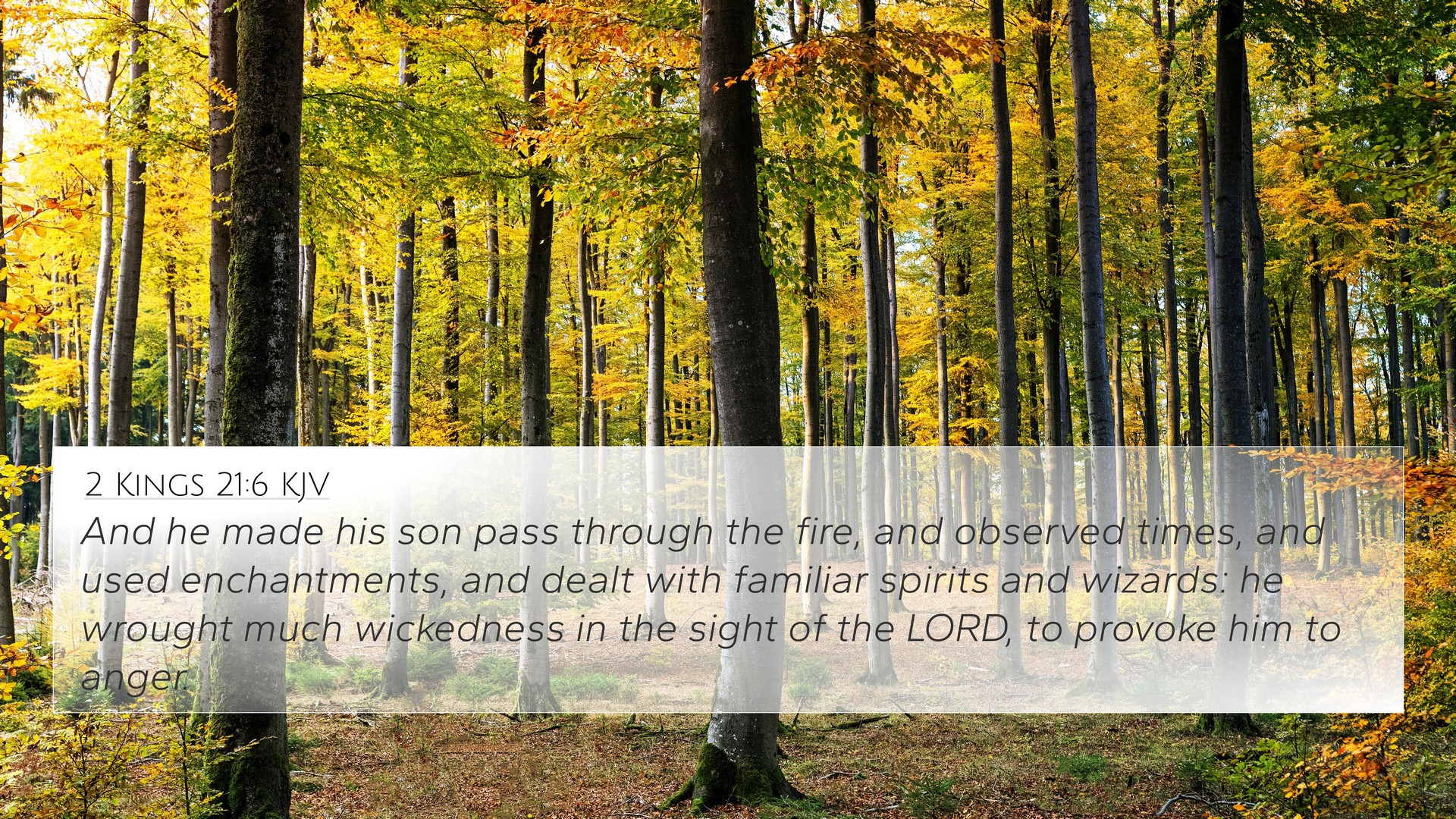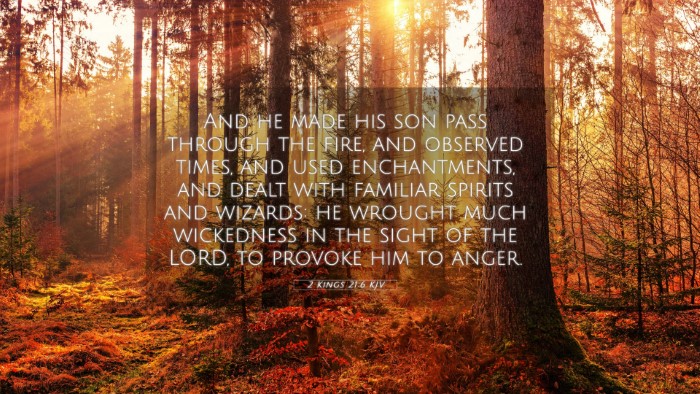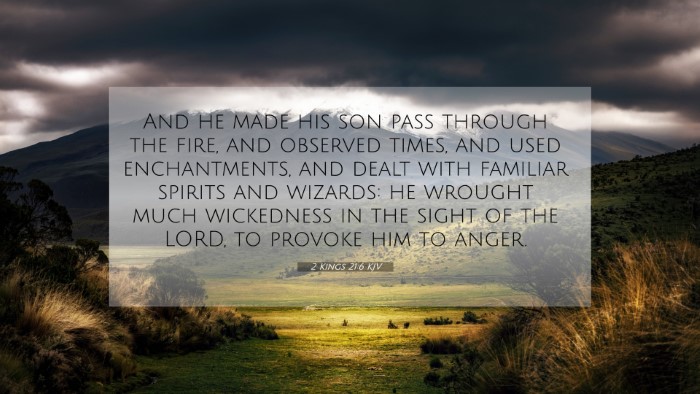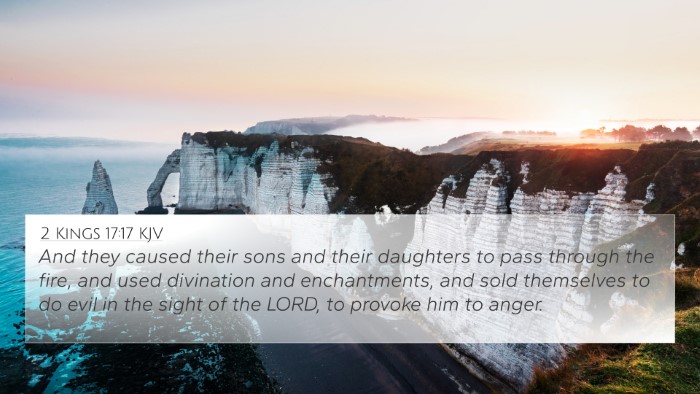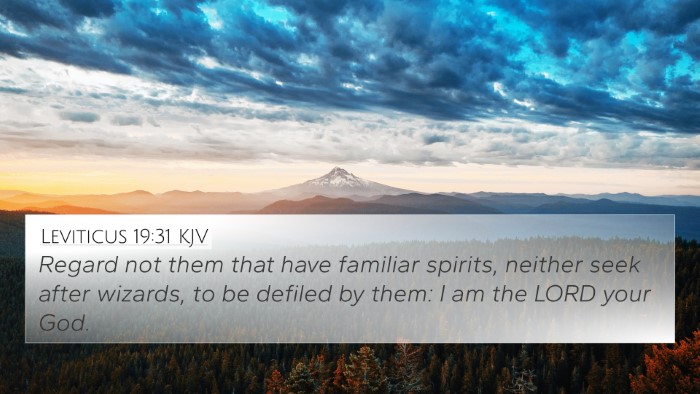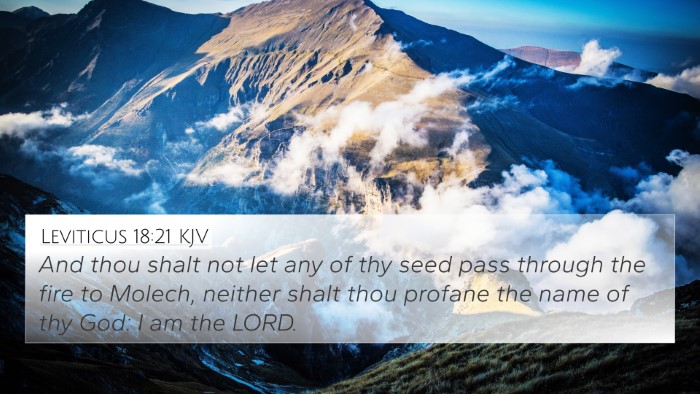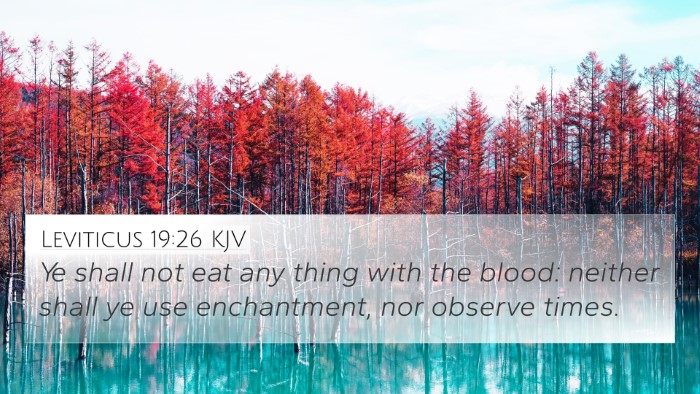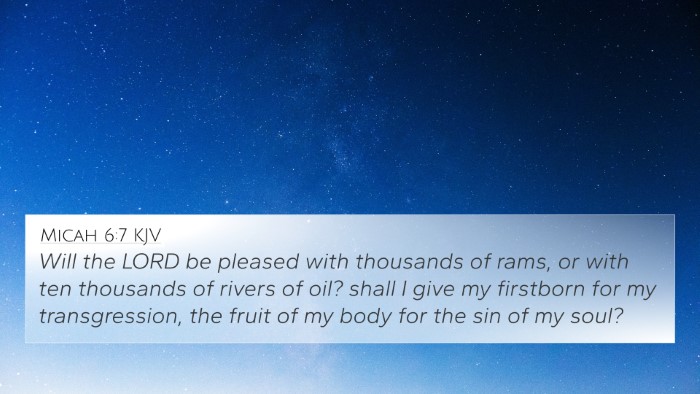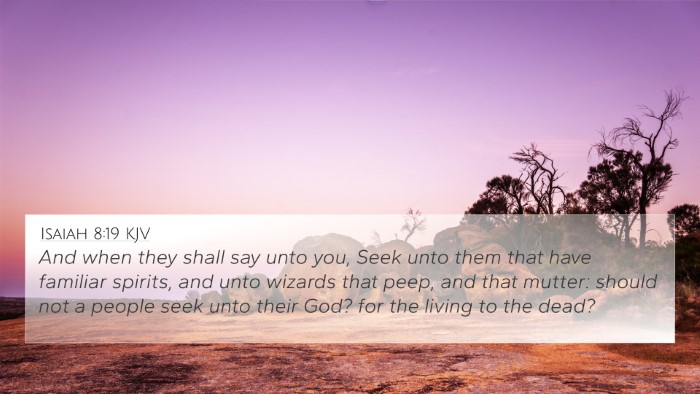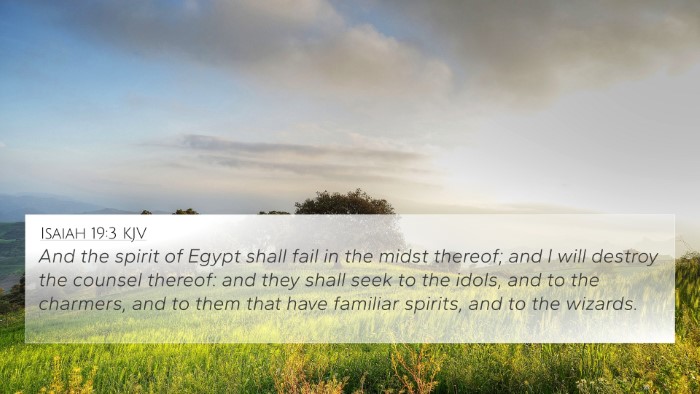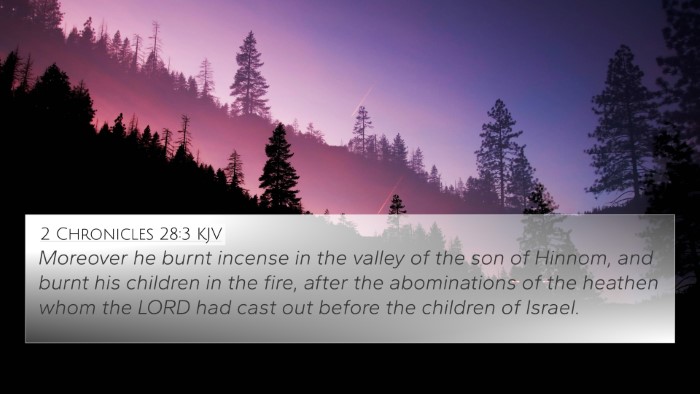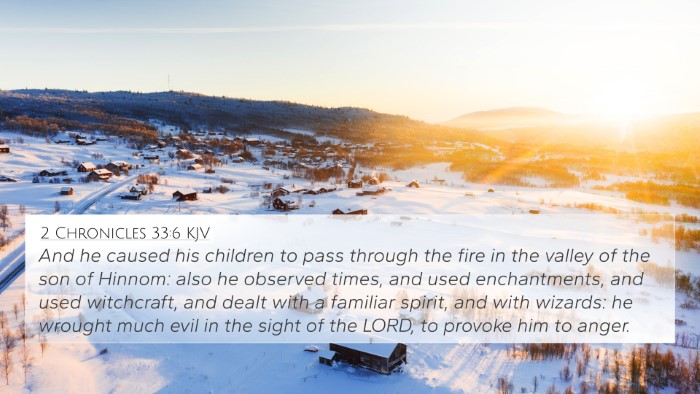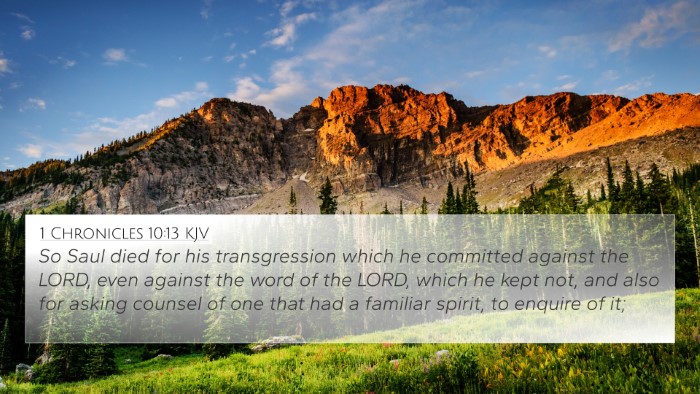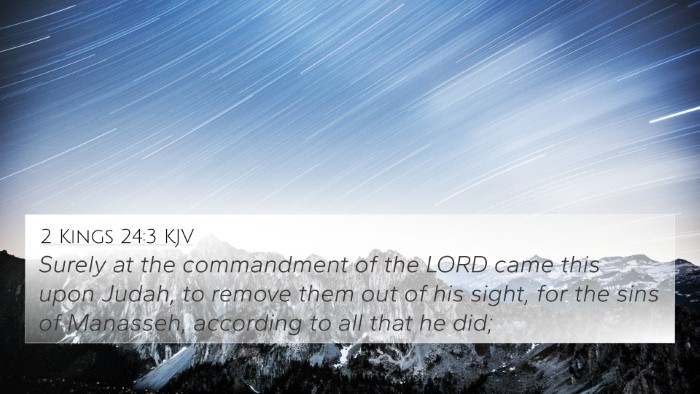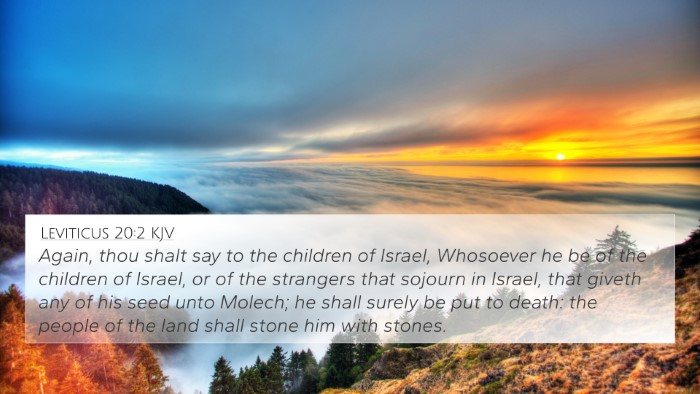Understanding 2 Kings 21:6
2 Kings 21:6 states: "And he made his son pass through the fire, and observed times, and used enchantments, and dealt with familiar spirits and wizards: he wrought much wickedness in the sight of the LORD, to provoke him to anger." This verse depicts the actions of King Manasseh, who engaged in practices condemned by God.
Contextual Background
The historical context surrounding this verse is critical for understanding its meaning. Manasseh's reign lasted for fifty-five years, during which he led Judah into deep idolatry and apostasy. His actions are highlighted in scripture as a significant turning point that led to God's judgment on Israel.
Key Interpretations
- Matters of Idolatry: Manasseh's sin included sacrificing his son, a practice associated with pagan worship and utterly detestable to the Lord (Leviticus 18:21, Deuteronomy 12:31).
- Consultation with Spirits: His use of enchantments and familiar spirits indicates a reliance on necromancy and witchcraft, which are condemned throughout the scriptures (Isaiah 8:19, Leviticus 20:6).
- Provocation of Anger: The phrase 'to provoke him to anger' implies that Manasseh’s actions were not merely sinful, but intentionally rebellious against God’s commandments.
Commentary Insights
Matthew Henry: Henry emphasizes that Manasseh's actions were not just personal sins but a national catastrophe resulting in widespread corruption and turning away from God.
Albert Barnes: Barnes suggests the verse illustrates the lengths to which Manasseh went in his rebellion against God, noting these were practices similar to those seen in surrounding pagan cultures, heightening the guilt of Judah.
Adam Clarke: Clarke points out that these practices were not only forbidden but highlighted a total disregard for divine law; he notes the urgency with which God’s warnings should have been heeded at that time.
Bible Cross-References
This verse is interconnected with several other scriptural references, highlighting the themes of idolatry and divine judgment:
- Leviticus 18:21: Prohibition of child sacrifices to Molech.
- 2 Kings 16:3: Ahaz's similar practices, showcasing a pattern of disobedience.
- Deuteronomy 18:10-12: A warning against divination and spiritism.
- Jeremiah 32:35: Condemnation of such practices in Israel.
- Isaiah 19:3: God's judgment on nations practicing sorcery.
- 1 Chronicles 10:13-14: The result of Saul's disobedience by seeking a medium.
- Romans 1:18-32: The general principle of God's wrath against ungodliness and unrighteousness.
Thematic Connections
This passage reveals major themes within scripture, particularly concerning sin, judgment, and the folly of forsaking God's law:
- Cross-referencing themes of spiritual blindness and rebellion against divine law.
- The impact of leadership on national morality, as showcased in the reign of other kings.
- Insights into God’s character, particularly His holiness and justice.
Application for Today
Understanding the gravity of Manasseh's actions serves as a warning against modern idolatries and the temptation to compromise faith. Today's believers are called to evaluate their lives against God's word, pursuing righteousness and avoiding the pitfalls of spiritual disobedience.
Conclusion
In summation, 2 Kings 21:6 serves as a poignant reminder of the dire consequences of turning away from God and engaging in practices that provoke Him. The cross-referencing of this verse with others throughout the Bible provides a comprehensive view of the themes of sin and redemption inherent in the Scriptures.
Further Study
For those interested in exploring more about cross-referencing biblical texts, tools such as a Bible concordance or a Bible cross-reference guide can be very helpful. These can establish connections between scripture that illuminate themes and deepen understanding of the Biblical text.
